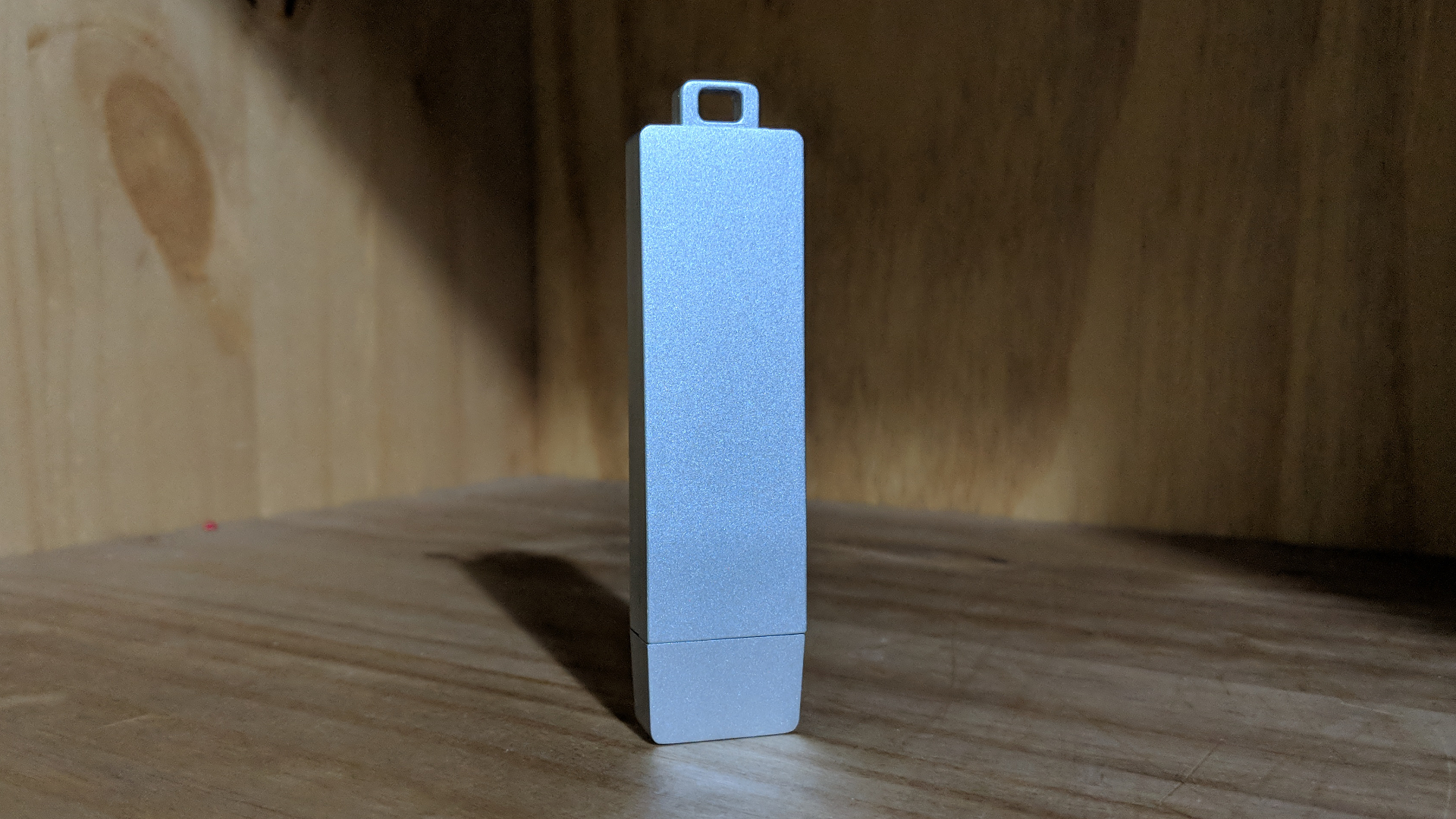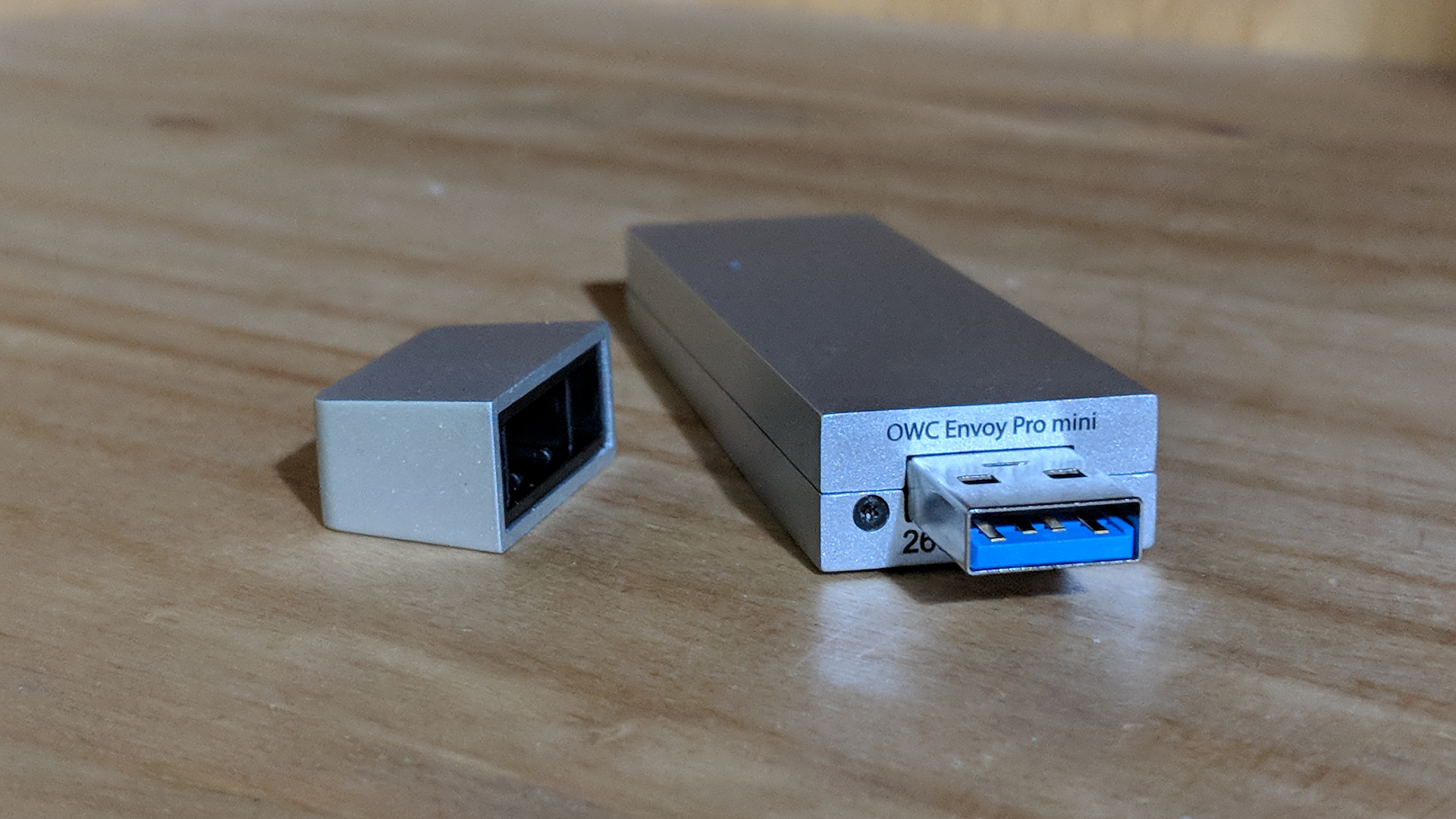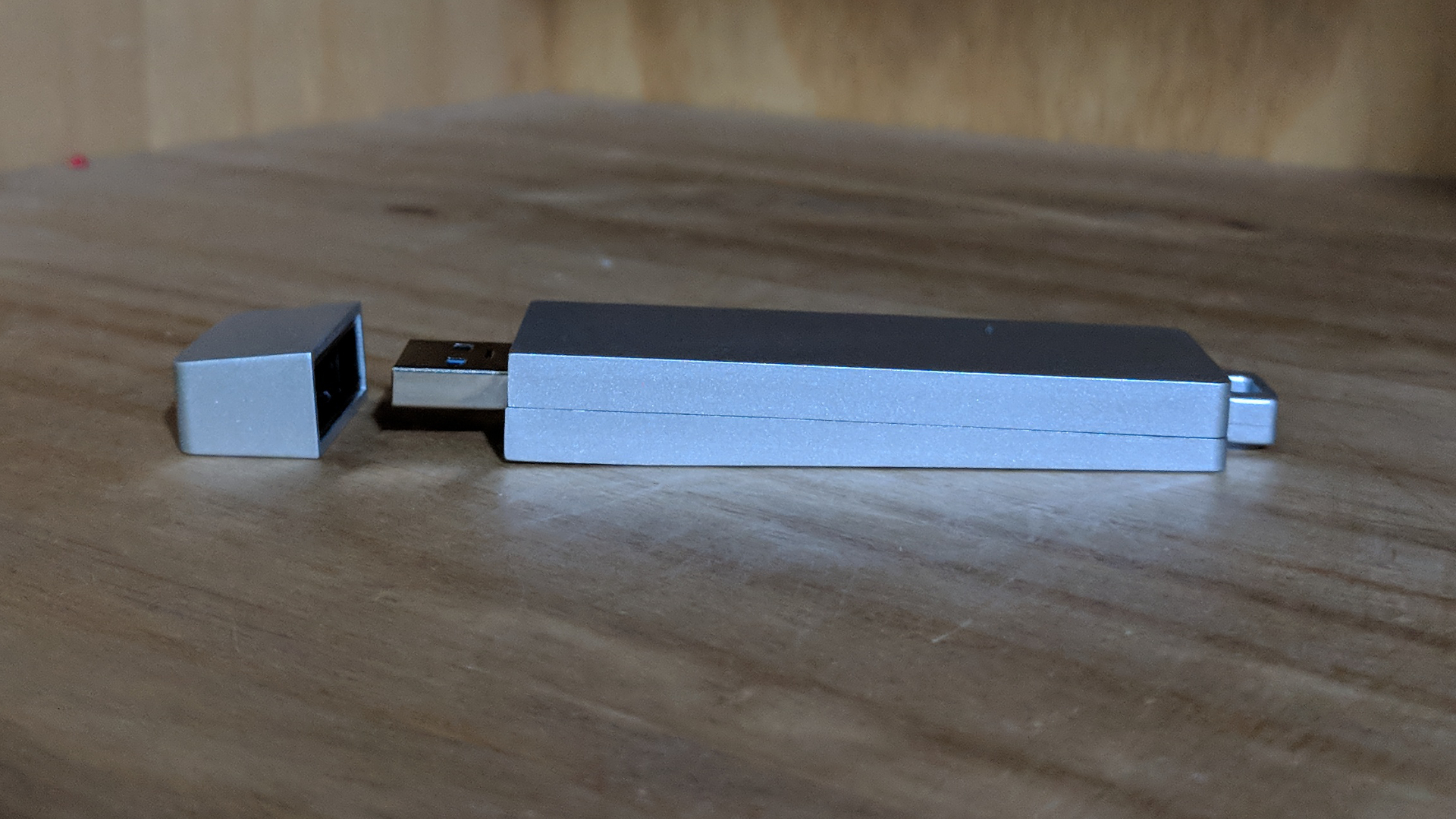TechRadar Verdict
This is a great little SSD-crossed-with-USB drive in a handy format that delivers the sort of performance you’d expect from a desktop SSD, but make sure you choose wisely when it comes to capacity. Go for the 240GB or 480GB models where possible as they carry the best bang-for-the-buck.
Pros
- +
Excellent performance
- +
Good price
- +
Great design
- +
Three-year warranty
Cons
- -
Some issues where ports are close together
- -
Still relatively expensive compared to external SSDs
Why you can trust TechRadar
Other World Computing (OWC) is a well-known brand amongst Apple hardware fans. As a sub-brand of MacSales.com, it has been selling Mac peripherals to Apple aficionados for two decades, focusing primarily on upgrade kits, docking stations and storage devices.
The company sent us the Envoy Pro Mini, which is a refreshed version of this popular model and carries the SKU code: OWCENVMKU3S120. This 120GB model, which costs $79 (£62) direct from MacSales, is the smallest in a range that comprises of a 240GB model – priced at $119 (£94) – and a 480GB product – costing $179 (£141) – with the latter carrying the cheapest per GB price.

Design
The OWC Envoy Pro Mini looks like a larger-than-average USB flash drive, not dissimilar in size to the Kingston DataTraveler Ultimate GT 2TB USB drive that we tested back in May 2017.
At 23.9 x 94 x 11.2mm (W x D x H), OWC’s model is small enough to fit in the back pocket of your jeans, and you can even wear it around your neck thanks to a bundled lanyard. It weighs just 60g.
OWC chose aluminum for the chassis not only because it is sturdy, good looking and light, but also because it acts as a great heatsink.

Remove the cap and you’ll see the blue USB 3.0 connector but no status lights. Note that when plugged in, the drive protrudes quite significantly from the USB port, and it could potentially cause significant damage to a laptop if knocked accidentally.
Here’s how the OWC Envoy Pro Mini performed in our benchmark tests:
CrystalDiskMark: 274MBps (read); 402MBps (write)
Atto: 460MBps (read, 256mb); 405MBps (write, 256mb)
AS SSD: 415MBps (seq read); 365MBps (seq write)
In use
The drive uses a Silicon Motion SM2258XT flash controller and an Asmedia 1153e USB 3.1 Gen 1 controller (offering speeds of up to 5Gbps). The former is a DRAM-less model aimed at the low-end of the market, while the latter is a four-year-old tried-and-trusted affair. And while OWC doesn’t mention where it sources the flash memory from, we know that it is of the 3D NAND type.
Sign up to the TechRadar Pro newsletter to get all the top news, opinion, features and guidance your business needs to succeed!
So in terms of performance, we didn’t expect much from this product. However, other than the relatively poor CrystalDiskMark read result (a slow 274MBps), all other benchmarks (CrystalDiskMark write, Atto, AS SSD) hit numbers well above 400MBps (or close to it, for AS SSD in terms of write speeds).
Tests carried out by OWC on QuickBench 5.0, a Mac-only benchmarking suite, showed sustained read/write speeds of around 412MBps and 400MBps respectively with cache deactivated. As always, your mileage will vary depending on a number of factors like the type of files being transferred, the media you’re transferring from, and so forth.
OWC engineers have implemented block management and wear leveling algorithms, and techniques to improve the lifespan of the drive, which does support NCQ and SMART as well.
A couple of observations: the drive runs reasonably warm under load and the chassis helps to dissipate this heat. The drive might also block other USB ports on thin-and-light devices or mini PCs where space is at a premium and connectors are usually very close together. That issue can be solved using a standard USB extension cable, though.

Final verdict
This product manages to squeeze a solid-state drive into the body of a USB flash drive. It delivers some very solid performance with some great numbers backed by OWC’s three-year warranty.
At $79 (£62), the Envoy Pro Mini is several times more expensive (and slightly smaller in capacity) than the traditional 128GB USB 3.0 flash drives that have flooded the market. The latter also tend to be far slower though (up to around 150MBps), and don’t come with the sort of technology that makes this device more reliable.
Rather than the 120GB drive reviewed, we’d recommend either the 240GB or 480GB models as they have a lower cost per GB and provide more wiggle room, especially if you want to run an OS from the drive, or plan to transfer large files or edit 4K videos. The added advantage of larger SSDs is that they tend to be marginally faster as well.
There’s simply no competition when it comes to this form factor: the HyperX Savage (HXS3) 512GB from Kingston costs far more than the 480GB model from OWC, and would still be behind the latter in terms of performance.
However, if you are happy to sacrifice portability and opt for a less elegant option, then there are plenty of fast and affordable alternatives like the Samsung T5, an award-winning portable SSD that is about twice the size of the Envoy Pro Mini. The Samsung drive connects via a USB Type-C port and benefits from far faster read/write speeds while costing about half the price.
- We’ve picked out the best portable drives for your PC or Mac

Désiré has been musing and writing about technology during a career spanning four decades. He dabbled in website builders and web hosting when DHTML and frames were in vogue and started narrating about the impact of technology on society just before the start of the Y2K hysteria at the turn of the last millennium.
